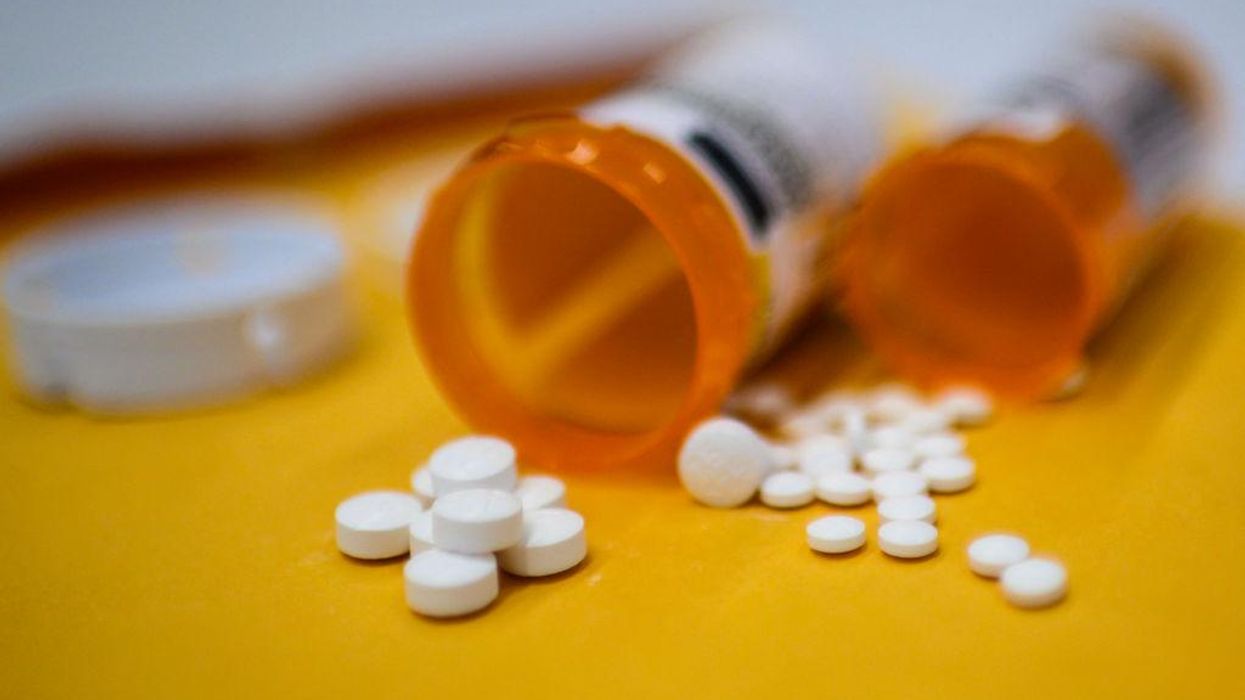
ERIC BARADAT/AFP via Getty Images

Attorneys generals from several states around the country recently announced that CVS and Walgreens have agreed to a whopping $10.7 billion settlement for their roles in the opioid crisis.
CVS and Walgreens have agreed to pay a combined $10.7 billion to settle lawsuits brought against them. The lawsuit accuse the national pharmacy chains of not adequately facilitating opioid prescriptions.
NBC News reported, "CVS will pay $4.9 billion to states and political subdivisions and approximately $130 million to tribes. Walgreens will pay $4.95 billion, plus more than $750 million in fees for attorneys and costs."
CVS will make payments spread out over 10 years. Walgreens will pay the settlement across 15 years.
The settlement money will be distributed to states, local governments, and federally recognized tribes for opioid treatment, recovery, and abatement.
The settlement was negotiated by attorneys generals from California, Colorado, Connecticut, Delaware, Illinois, Indiana, Iowa, Kentucky, Louisiana, Massachusetts, Nebraska, New York, North Carolina, Ohio, Pennsylvania, Rhode Island, Tennessee, and Texas.
Oregon Attorney General Ellen Rosenblum stated, "Pharmacies were a key link in the supply chain that contributed to the greatest drug-induced public health crisis in modern America. This may seem like a lot of money –and it is – but compared to the harm caused by America’s largest pharmacy chains, it barely scratches the surface."
Wisconsin Attorney General Josh Kaul said, "The hundreds of millions of dollars coming to Wisconsin through agreements like these will have a major impact on efforts to curb substance-use disorder in communities across the state. Fighting the opioid epidemic is a top priority at the Wisconsin Department of Justice."
Tennessee Attorney General Jonathan Skrmetti reacted by saying, "The opioid crisis continues to plague Tennesseans and we will continue to pursue its contributors. While no amount of money will be enough to heal broken communities, we will send settlement money to the Opioids Abatement Trust Fund to assist in bringing the epidemic to a halt. This office will not let up on holding pharmaceutical companies accountable, and I commend our Consumer Protection team for their diligence."
New York Attorney General Letitia James added, "In New York and across the nation, communities continue to mourn family, friends and loved ones lost to the opioid crisis. Though we cannot reverse the devastation, my fellow attorneys general and I are committed to holding those who allowed this epidemic to run rampant through our country to account."
Neither pharmacy company admitted to any wrongdoing.
Walgreens issued a statement in November that read: "As one of the largest pharmacy chains in the nation, we remain committed to being a part of the solution, and this settlement framework will allow us to keep our focus on the health and wellbeing of our customers and patients, while making positive contributions to address the opioid crisis."
Last month, Walmart also settled for its role in the opioid crisis, but "strongly" disputed any wrongdoing. Walmart agreed to a $3.1 billion settlement.
In February, four pharmaceutical companies – Johnson & Johnson, AmerisourceBergen, Cardinal Health, and McKesson — agreed to pay $26 billion to settle lawsuits stemming from the deadly opioid addiction crisis.
"In total, corporations have had to pay $54 billion in settlements," according to NPR.
Between 1999-2020, over 564,000 people died from overdoses involving opioids, including prescription and illegal opioids, according to the Centers for Disease Control and Prevention (CDC).
The CDC reported opioids were involved in 68,630 overdose deaths in 2020 – 74.8% of all drug overdose deaths.
The CDC found, "Opioids were involved in more than 68,000 deaths in 2020, which was 8.5 times the number of opioid-involved overdose deaths in 1999."